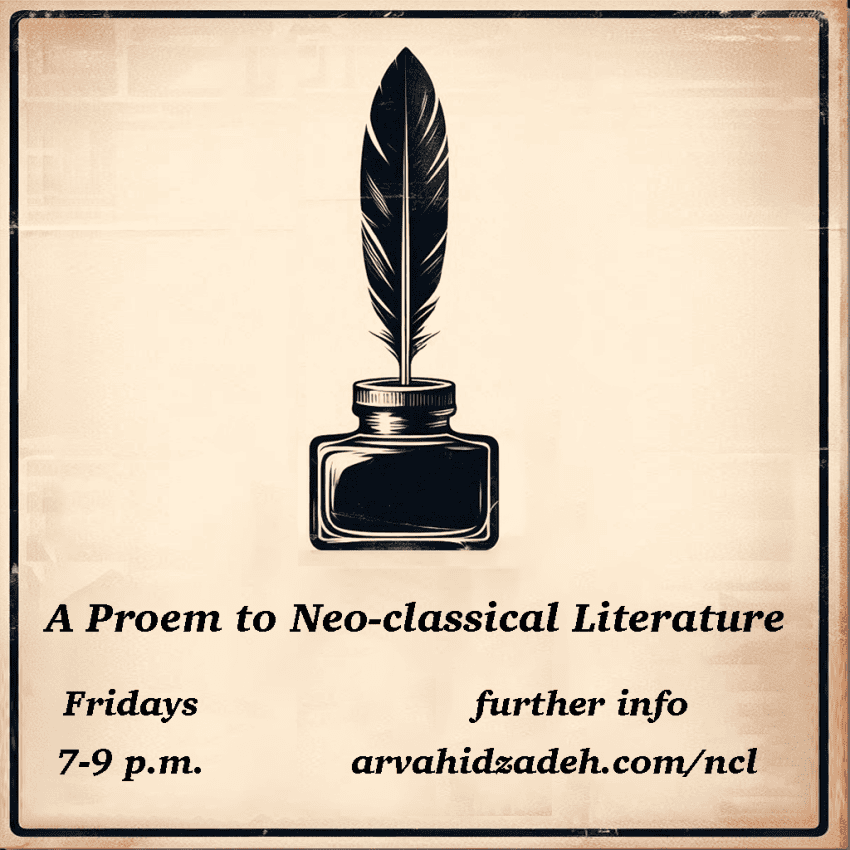Course Overview:
This course offers a measured and discerning introduction to the British Neoclassical tradition, an era wherein the principles of classical antiquity were not merely revived but rigorously interrogated and artfully reimagined. Spanning the late seventeenth to the late eighteenth century, this period witnessed a resurgent veneration for order, propriety, clarity, and rationality, tempered always by a mordant wit and a moral gravity. Particular emphasis shall be afforded to the works of Alexander Pope, the Scriblerian circle, and Samuel Johnson, whose literary exertions embody both the grandeur and the restraint that define the Neoclassical ethos. Through a close engagement with verse, prose, satire, and moral philosophy, students will be invited to consider the cultural, intellectual, and aesthetic imperatives that animated the age.
Session I: The Classical Inheritance – Foundations of the Neoclassical Spirit
Introduction to the aims and intellectual tenor of the course.
Consideration of the Neoclassical ideal: the triumph of reason, the doctrine of decorum, and the emulation of ancient precedent.
Historical and philosophical context: the Restoration, the Augustan Age, and the Enlightenment.
The influence of Aristotelian and Horatian precepts on English letters.
Prescribed Readings:
Horace, Ars Poetica (selected passages)
John Dryden, An Essay of Dramatic Poesy (excerpts)
Session II: Alexander Pope – The Architect of Moral Harmony
Pope as the consummate poet of the Augustan imagination: uniting philosophical gravity with poetic elegance.
The heroic couplet as an instrument of intellectual clarity and rhythmic precision.
The interplay between nature, art, and reason in Pope’s didactic verse.
Prescribed Readings:
Pope, An Essay on Criticism (selected lines)
Pope, An Essay on Man (Epistles I & II)
Session III: The Scriblerian Sublime – Learned Satire and the Art of High Mockery
The Scriblerus Club: Pope, Swift, Arbuthnot, Gay, and Parnell – their literary camaraderie and shared satirical vision.
The Scriblerian sublime as a mode of magnified irony, wherein absurdities are exalted to reveal their inner vacuity.
The tension between intellectual erudition and social folly.
Prescribed Readings:
Pope, The Dunciad (Book I, with annotations)
Excerpts from The Memoirs of Martinus Scriblerus
Swift, A Digression on Madness (from A Tale of a Tub)
Session IV: The Mock-Heroic and the Trivial Sublime – Pope’s Rape of the Lock
The mock-epic as a supreme expression of satirical finesse and classical imitation.
Triviality elevated to heroic proportions: an ironic meditation on the vanities of society.
The delicate interplay of wit, beauty, and social critique.
Prescribed Readings:
Pope, The Rape of the Lock (complete)
Pope’s introductory letter to Arabella Fermor
Commentary on the use of sylphs, machinery, and the epic form
Session V: Dr Johnson and the Gravitas of Neoclassical Criticism
Samuel Johnson as both custodian and critic of the Neoclassical tradition.
His prose as a model of rhetorical solemnity and ethical reflection.
The dialectic between liberty and rule in his literary judgement.
Prescribed Readings:
Johnson, The Vanity of Human Wishes
Johnson, Preface to Shakespeare
Selections from The Rambler and The Idler
Session VI: The Civilising Essay – Propriety, Politeness, and Public Morality
The rise of the periodical essay as a form of social instruction and cultural refinement.
The cultivation of manners and morals through elegant prose.
Contrasts between Addison’s urbane ease and Johnson’s moral austerity.
Prescribed Readings:
Addison and Steele, The Spectator (Nos. 10, 34, 62)
Johnson, The Rambler (selected essays)
Reflections on clarity, brevity, and reasoned discourse
Session VII: Women, Wit, and the Scriblerian Shadow
The ambivalent position of women within the Neoclassical canon.
Female authors’ engagements with, and resistances to, the decorous restraints of the age.
The question of reason and gendered authority in the literary public sphere.
Prescribed Readings:
Lady Mary Wortley Montagu, Epistle from Mrs. Yonge to Her Husband
Mary Astell, A Serious Proposal to the Ladies (excerpts)
Pope, Epistle to a Lady; Verses to the Memory of an Unfortunate Lady
Session VIII: The Waning of Neoclassicism – From Order to Sensibility
Signs of disquiet: the emergence of emotion, subjectivity, and the sublime.
The elegiac tone of late Augustan verse and its gestation of Romantic themes.
Retrospective contemplation of the Neoclassical legacy in British letters.
Prescribed Readings:
Thomas Gray, Elegy Written in a Country Churchyard
William Blake, Songs of Innocence and Experience (selected poems)
Concluding discussion on the afterlife of wit, taste, and classical form
Suggested Supplementary Readings (Optional):
Pope, Epistle to Dr Arbuthnot
Swift, A Modest Proposal
Johnson, Lives of the Poets (entries on Pope and Swift)
